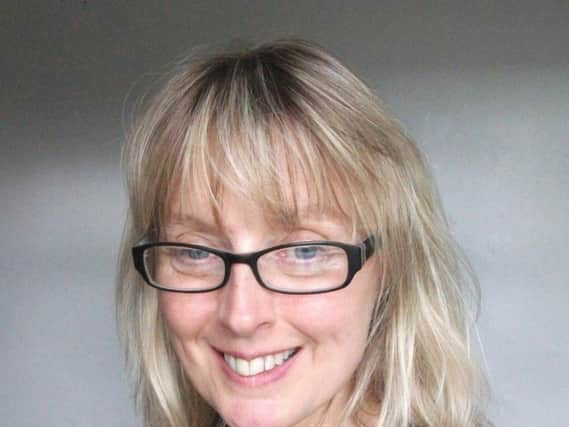We talk to playwright Hattie Naylor who has adapted Sarah Waters’ bestseller The Night Watch for the stage


Published in 2006, the novel – an intricate portrait of ordinary people caught up in an extraordinary time, set in London in the 1940s with a lesbian love story at its heart – was shortlisted for both the Orange Prize and the Man Booker Prize that year. The play was originally staged in 2016 and this revival opens at York Theatre Royal next month before going on to tour the UK. Naylor, an Olivier-nominated playwright who teaches scriptwriting part-time at Sheffield Hallam University, was chosen by Waters from a number of suggested writers.
With some big changes at York Theatre Royal, theatre correspondent Nick Ahad speaks to chief executive Tom Bird. “When we first met up to talk about it, Sarah told me that one of her inspirations for the novel was Harold Pinter’s play Betrayal,” says Naylor. This makes a lot of sense considering the central narrative – a love affair that flounders on infidelity – and the novel’s famous reverse chronology structure. Pinter’s domestic tragedy about a marriage falling apart also begins in the present and spools back into the past. It is a neat trick to pull off, and Waters does it superbly in the book, which begins in 1947 and then rewinds to the early days of the Second World War, but recreating that timeline on stage is potentially problematic. However, Naylor says she wasn’t particularly concerned about that.
Advertisement
Hide AdAdvertisement
Hide AdReview: Swallows and Amazons, York Theatre Royal“The audience realise pretty quickly that we are going back in time,” she says. “There are all sorts of ways we can give hints subliminally, such as with the music we use, but mostly it is about the amount of information you have and how things are revealed.” The main character is ambulance driver Kay who works on the night watch and the storyline follows a triangular relationship involving Kay, Helen and Julia, weaving in and out of the lives of others, all of whom are trying to get by as best they can, falling in love, making mistakes, failing and picking themselves up again. “There is a tragic quality to all the characters,” says Naylor. “One of the things I really love about the book is that it has a real Chekovian feel to it. I wanted the play to have that epicness about it and to keep the tragedy intact. I absolutely adore Chekov because you are left with many different types of endings. It’s a much richer metaphor for life in the sense that you almost always tend to go back to a place where you started.
“I don’t like to conclude stories, so I made the storylines less concluded than in the book even. I think that when things aren’t all neatly tied up you are more likely to question human nature and interrogate people’s actions.”
The play and the book both explore the intensity of the wartime experience, a time when normal societal rules were relaxed and for the first time many people – women in particular, gay and straight – felt free. “All Sarah’s stories are universal,” says Naylor. “In The Night Watch you are watching people falling in love and being betrayed. There is prejudice still out there but every time you show something that affects us all, you can make a difference.”
The Night Watch, York Theatre Royal September 4-7.